Are you consistently exhausted — even when you're getting enough sleep? If so, there might be a few not-so-obvious reasons you're so sluggish. Lucky for you, there are also a few pretty easy fixes!
The quick answer to why you’re tired is that you don’t get enough sleep.
That’s sometimes not the case, however; some habits and routine circumstances can lead to fatigue and sluggishness even if you’re sleeping the required 7-9 hours a night.
Others disrupt your sleep without you being aware of them.
Knowing these and taking positive steps to mitigate their effects will help you get the most from your sleep and allow you feel more alert and be more active.
1. Junk food.
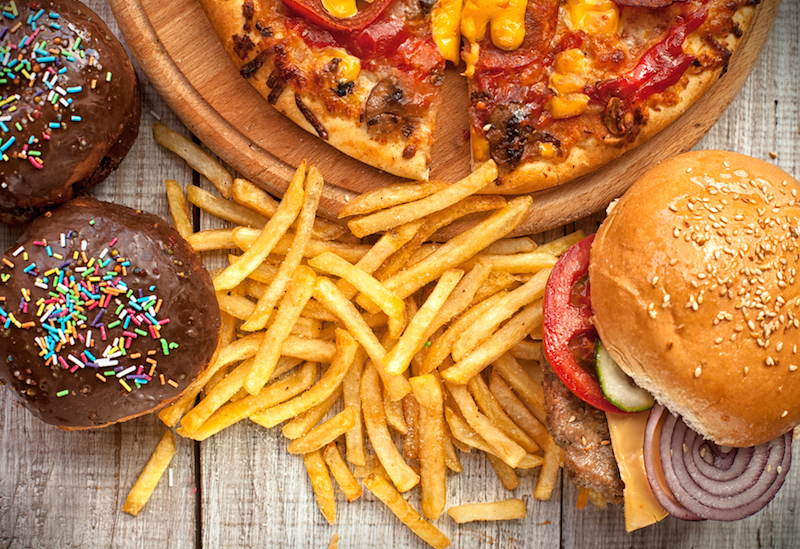
Source: greatist
Don’t do it. Processed food makes us fat and lazy. There’s nothing good about them. Most people eat way too much sugar, which causes energy spikes and valleys, leaving you pooped. Replace the sugar with protein and healthy fat and you’ll feel better. Lean meats and fish, organic fruits and vegetables, fruit oils (olive, coconut, sesame), and fermented foods will give your body what it needs and you’re less likely to crave the quick fix of junk food.
2. You eat a breakfast high in sugar.
Eating a meal high in sugar early in the morning causes your blood sugar to spike - giving you an enormous, temporary energy rush - that likely only lasts up to an hour. After that, your blood sugar plummets and takes your energy with it, making you feel fatigued for the rest of the day.
3. You're not waking up early enough.
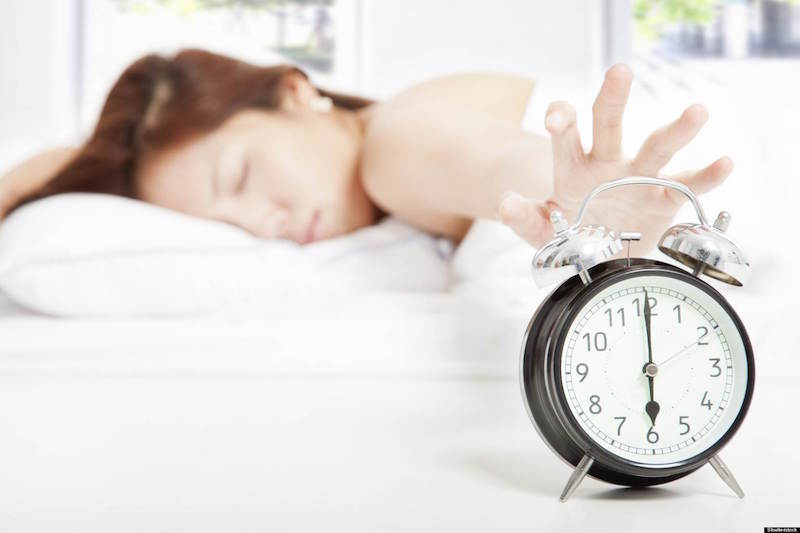
Source: msecnd
Take your hand away from the snooze-button. While it may seem counter-intuitive, sleeping until the last possible second might actually be harming you more than helping you! "Early to bed, early to rise, makes a (wo)man healthy, wealthy and wise" isn't just a cute rhyme. You really do need to get up and take some time for yourself to de-stress before heading out for the day. Don't believe us? A 2008 Harvard study showed that morning people better anticipate problems than night owls and are more proactive, which is linked to better job (and life) performance and success.
4. You're dehydrated
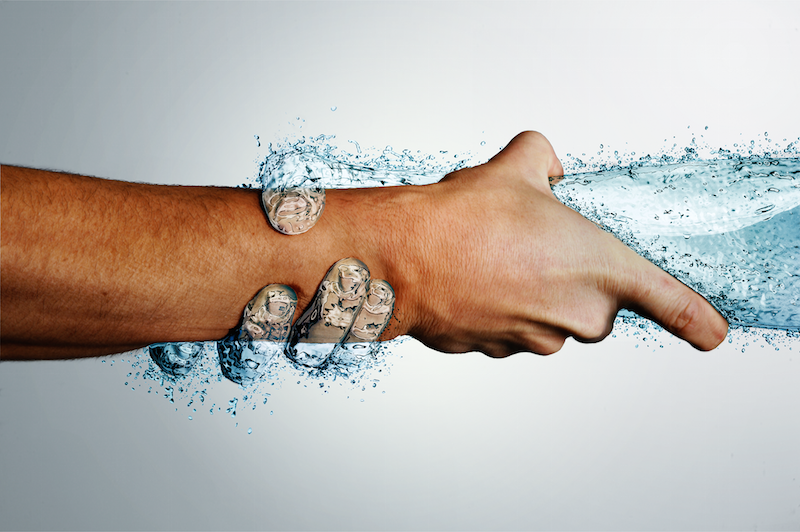
Source: wpengine
Few people realise that the first symptom of dehydration isn't necessarily thirst, but lethargy. After all, humans rely on getting enough water to keep a number of systems functioning including your brain, your gut and your heart. When your body is deprived of enough water, it starts to slow down your activity in order to preserve the liquid you've got left for more important functions like breathing and pumping blood.
5. You're magnesium deficient.
Yes, it sounds weird, but think of magnesium "as the relaxation mineral," explains Dr. Mark Hyman, director of the Cleveland Clinic Center for Functional Medicine. Why? It helps improves how effective your sleep is, how long it takes you to fall asleep, and how long you're out, according to the National Institutes of Health. To make sure you're getting a healthy dose, Jaclyn London, Nutrition Director at the Good Housekeeping Institute, suggests foods like nuts, seeds, beans, avocados, and leafy g
6. You don't get enough natural sunlight.
Going from a dark room to a dark office is a nice way to prevent sunburn, but it's unlikely to do your sleep any good. That's because getting enough sunlight on your face effectively resets your body clock, and starts the process of "waking up" your body with certain energy-giving hormones. Of course you don't need to spend hours in the sun to achieve this - 15 to 30 minutes a day is sufficient to get your daily dose of vitamin D.
7. Skipping breakfast.

Source: timedotcom
When you wake up, hormones are released to get everything up and running. After an hour or so, all systems are go and your body needs fuel for them. Not eating breakfast within ninety minutes of waking can leave you feeling tired and unable to concentrate. A protein, a nutritious fat, and a fruit combine well for short-, medium-, and long-term energy availability. Eggs, oatmeal, nut butter, banana, grapefruit, berries, Greek yogurt, salmon, or a smoothie are all good choices to nourish your morning.
8. You're overtraining.

Source: dailyskinandlifemodel
Back to back gym classes on little sleep and little food is a recipe to have you feeling tired all the time. This is called overtraining, which can be loosely defined as doing a level of physical activity from which you can't recover. When this happens, your adrenal glands become fatigued from "hyping you up" to train, and begin to regress. Thankfully, the solution is rather easy: take a few days off, make sure your diet is filled with nutrient-rich foods, and make sleep a priority.
9. You're low on iron.
If you're getting enough sleep but still feel tired all the time, you may not be getting enough enough iron in your diet. This is called anaemia, and often occurs to pregnant women and teenagers undertaking extreme "salad only" type diets. To rectify this, the easiest way is simply to chow down on red meat and poultry - but if you're a vegetarian other iron-rich foods include spinach, bread, seeds and tofu
10. Staying Up Late on Weekends
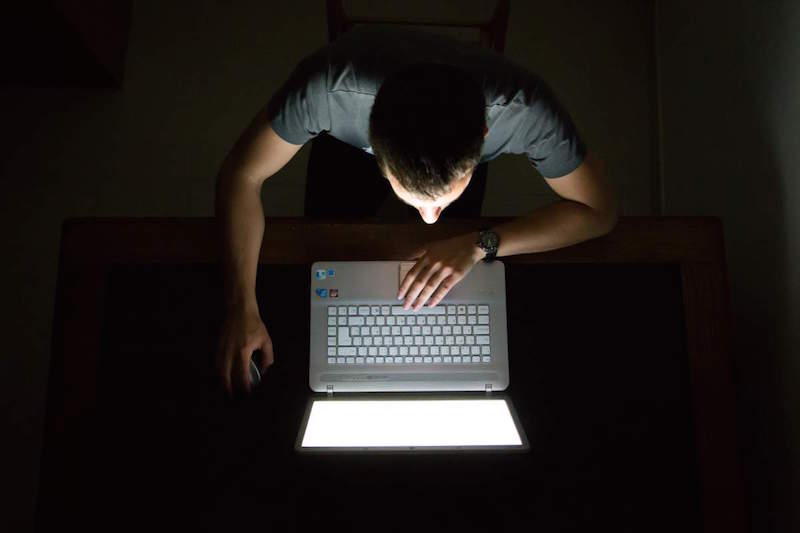
Source: australiannationalreview
Much as we would like to remain party animals for life, having a different schedule on weekends than during the week can disrupt sleep so that you start off tired Monday morning and never quite catch up. Something to try: after a late night, get up at your regular weekday time, then take a twenty- to thirty-minute nap in the afternoon. It may be enough to allow a bit of rest and make you feel re-energized without preventing you from falling asleep at the regular time later that night.
11. No exercise.
Sometimes you just have to plow through it. When we feel tired, we may be very tempted to skip a work-out. This is actually counter-productive: regular vigorous exercise–even twenty minutes, three times a week–will help blood circulation to deliver oxygen and nutrients around the body, improve muscle tone and efficiency, boost the immune system, and help you sleep better. If it’s time for a work-out, put on some energizing music and start moving; after a couple of minutes, you’ll start to feel better–really.
12. Alcohol before bed.
Drinking alcohol within four hours of bedtime can disrupt your sleep. After imbibing a glass of wine, you may feel tired and go to sleep but chances are you’ll wake up a few hours later due to the energy and chemicals released to metabolize the alcohol (which is mostly sugar). Not to mention the fact that alcohol also disrupts the natural release of melatonin (sleeping hormone).
13. Caffeine.
Up to three cups of coffee a day is good for you but any caffeine within six hours of bedtime is a bad idea because it can interfere with sleep. Energy regulators called adenosine are responsible for telling your body you’re becoming tired–caffeine works by blocking adenosine. That’s great at noon but not so great at midnight. Caffeine is found in more than just coffee and tea; sodas, candies, energy and sports drinks, and other foods can contain this stimulant.
14. Email before bed.
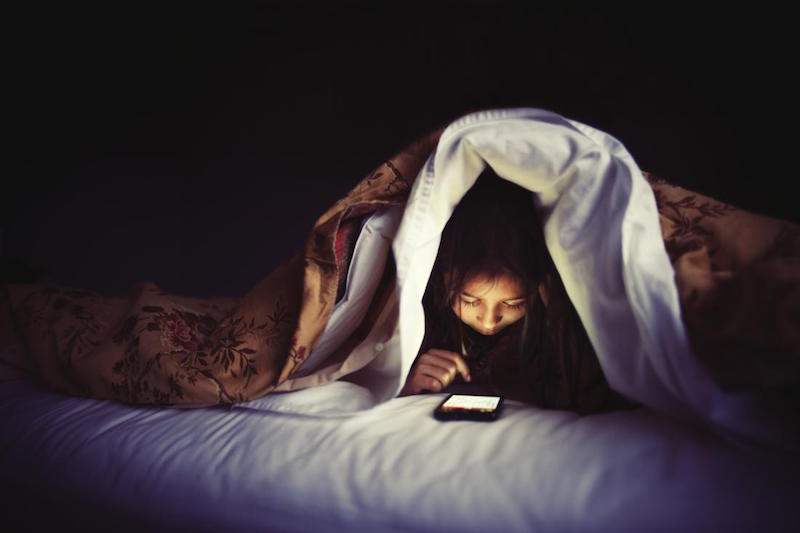
Source: thenortheasttoday
Many of us are very attached to electronic devices that connect us with the rest of the world. There are two main issues around using these that relate directly to feeling tired:
1) if you watch television or check your email/social media/weather, etc. right before bed, there is a tendency to get caught up in it, losing track of time–and sleep;
2) the radiant light is a strain on the eyes and causes fatigue at any time of day.
Additionally, staring at the light can disrupt the production of melatonin, a hormone that tells your body to go to sleep, messing up your circadian rhythm.[1] Turn off any electric appliances at least an hour before hitting the hay.
15. No to No.

Source: hypnosisselfhelp
If you’re one of those people who can’t say no, you’re setting yourself up for chronic fatigue. Being all things to all people is impossible. Doing everything well that others ask of you is impossible. Allow yourself to be human. Set reasonable expectations of yourself as if you were someone else. People-pleasers live a daily up-hill battle trying to do it all.
Ask yourself how you would view a friend who had everything on her plate that you do–what advice would you give? Cut yourself some slack. Saying no to something will not result in the end of the world. Practice saying it in nice ways when you’re alone so that when the next person asks you to fit something into your schedule that there’s really no time for, you have a ready polite decline in your pocket. It’s okay.
Here are 6 health conditions known to cause fatigue.
1. Anaemia.
One of the most common medical reasons for feeling constantly run down is iron deficiency anaemia. It affects around 1 in 20 men and postmenopausal women, but may be even more common in women who are still having periods.
Typically, you'll feel you can't be bothered to do anything, your muscles will feel heavy, and you'll get tired very quickly.
2. Chronic fatigue syndrome.
Chronic fatigue syndrome (myalgic encephalomyelitis, or ME) is a severe and disabling tiredness that goes on for at least six months. There are usually other symptoms, such as a sore throat, muscle or joint pain, and headache.
3. Underactive thyroid.
An underactive thyroid gland means you have too little thyroid hormone (thyroxine) in your body. This makes you feel tired.
You're also likely to put on weight and have aching muscles. It's most common in women and happens more often as you get older.
Your GP can diagnose an underactive thyroid by taking a blood test.
4. Diabetes.
One of the main symptoms of diabetes, a long-term condition caused by too much sugar in the blood, is feeling very tired. The other key symptoms are feeling very thirsty, going to the toilet a lot, and weight loss. Your GP can diagnose diabetes with a blood test.
Read more about diabetes and find out how to make smart sugar swaps.
5. Depression.
As well as making you feel very sad, depression can also make you feel drained of energy. It can stop you falling asleep or cause you to wake up early in the morning, which makes you feel more tired during the day.
6. Restless legs.
This is when you get uncomfortable sensations in your legs, which keep you awake at night.
You might have an overwhelming urge to keep moving your legs, a deep ache in your legs, or your legs might jerk spontaneously through the night.
Whatever your symptoms, your sleep will be disrupted and of poor quality, so you'll feel very tired throughout the day.
You can also read :







